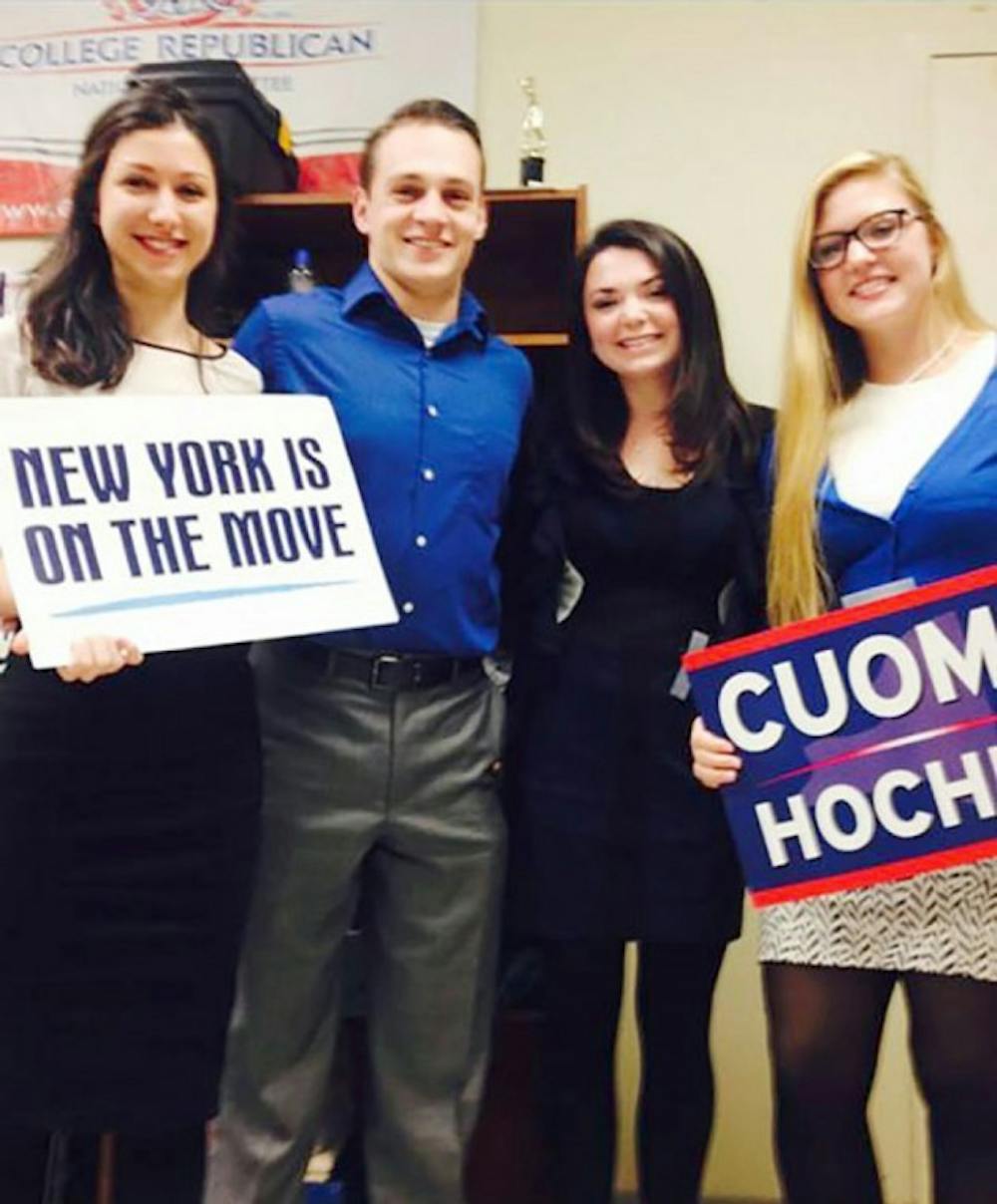Fewer than 25 percent of Americans between 18 and 29 voted in the last midterm election.
Alana Barricks, the president of the College Republicans, worries students are going to become a generation of nonvoters. With the latest midterm election approaching Nov. 4, members of UB’s political clubs expect the majority of students won’t make their way to the polls.
Barricks, a senior political science major, said most people focus on presidential elections. She said there’s a problem with students not voting.
“It creates this generation of nonvoters,” Barricks said. “Everyone says when you’re older, you’ll start voting, but the problem is that it’s really affecting us right now.”
In the 2010-midterm elections, voter turnout for Americans between the age of 18 and 29 was 24.2 percent, according to The Center for Information and Research on Civic Learning and Engagement (CIRCLE).
Laura Mannara, a junior economics and political science major and president of College Democrats, said every student should be concerned with elections even if they are not interested in politics.
“It touches home,” she said. “If you look deep enough, you will find issues that correspond to you because it is the government and it runs a lot of your life, whether you want to pay attention to it or not.”
Presidential elections receive more media attention, which Mannara said helps to bring up students voters, but midterm elections are not highlighted in the media as much.
Carly Gottorff, a sophomore political science major and vice president of College Democrats, said most people become passive when there is a large population of one party in a state. This also leads to party lines becoming super ingrained for voting decisions, she said.
The governor election for New York State has current Democratic Gov. Andrew Cuomo campaigning against Republican candidate Rob Astorino and Green Party candidate Howie Hawkins.
The CIRCLE data showed the top reason – at 33.5 percent – for youth not voting as being “too busy” or having “conflicting work.” The second reason youth voters did not vote was because they were “not interested” and felt their vote would not count, at 17.2 percent.
Barricks said there is a polling site on UB campus located in the Student Union and UB, but she doesn’t feel it is well publicized.
“I’m a very involved member of the political arena, and I didn’t even know,” she said of the on-campus polling. “The fact that any student that’s involved doesn’t necessary know about the polling site, definitely any student that isn’t involved is going to have no idea.”
Barricks referenced a “party bus” that Cosmopolitan magazine is sending to North Carolina State University to take students to polls on Nov. 4. The bus was a part of a contest the university won and will have food, “swag” and male models, according to The Washington Post.
Barricks felt the contest was “degrading” to female student voters, and although the bus was bringing more voters, she would rather have more students get informed about the elections.
Gottorff said her club has tried to talk to people about elections and political issues but most students find it “offensive” and it is easier to talk to students about them if they come to meetings.
“When some kids hear the word politics, they automatically think it’s going to get heated and really with elections is not about the partisanship, it’s just about the right to vote,” Mannara said.
Minahil Khan, a junior political science major and UB Council student representative, attends College Democrats meetings. She said it is never too late to become involved with politics.
Khan entered UB as a politic science major because she said wanted to attend law school, but she was never involved in politics beforehand. She first joined College Republicans and then switched over to College Democrats.
“At any point, you can read the newspaper and you can become informed,” she said.
When Barricks came to UB, she wasn’t sure which political party she wanted to join. So she attended both College Democrats and College Republicans meetings, and she realized she identified more with the Republican values.
Khan said people in America should be grateful they have the right to vote because it is not something that is universal. Khan, who was born in Pakistan, said she would not have had the right to vote if she was still there.
“Whether or not [your vote] matters is not as particularly important as the fact it’s a right that I have that other people don’t,” she said.
For students who are not interested in politics, Barricks said getting in touch with local elections could be a way for students to figure out their future.
Politics can also affect topics in the hard sciences like through funding for the National Science Foundation, Khan said.
“You can make so many connections and network with people you never would’ve networked with otherwise, because really in the political atmosphere, everyone is involved in every different field of study, career, anything,” she said.
email: news@ubspectrum.com





